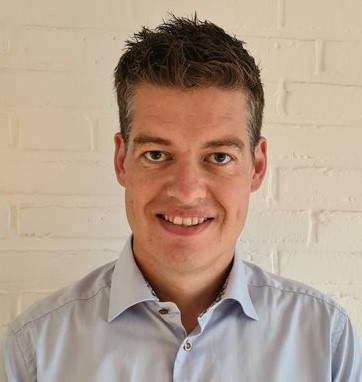HYGrothermal performance in exterior walls
Project contact at University of Southern Denmark Martin Winther-Gaasvig
The focus of the project is look at the hygrothermal performance of exterior walls in residential buildings.
In the quest to build with a lower CO2 footprint, more bio-based material is being introduced. However, the new materials must still be robust so that buildings or other constructions will last for many years. Furthermore, it is important that the new materials should also not cause indoor climate problems such as regarding damp and mold.
About the project Project researchers
Time: 2022- 2024
Sustainability in practice – direct reuse of structural timber
Participants SDU
Project Leader; Henrik Brøner Jørgensen, University of Southern Denmark
Participating companies
Rex-Skov Arkitekter
BRAV Rådgivdende Ingeniører
Enemærke & Petersen A/S
LH Hockerup A/S
Stark
About the project
News Item from Tv2FYN (external link)
Combined in-plane and out-of-plane shear in existing concrete bridges to avoid replacements
Participants SDU
Project Leader; Henrik Brøner Jørgensen, University of Southern Denmark
Industrial PhD Candidate: Jens Skovgaard Larsen, University of Southern Denmark and COWI A/S
Participating companies
COWI A/S
Financing: Innovation Fund Denmark and Cowifonden.
Period: February 2023 – August 2026
Design and load-bearing capacity determination of 3D robot-printed concrete structures
Participants SDU
Project Leader; Henrik Brøner Jørgensen, University of Southern Denmark
Roberto Naboni, SDU.CREATE, University of Southern Denmark
Christian Schlette, Large Structures Production LSP, University of Southern Denmark
Participating companies
Bygkontrol ApS,
3DCP Group,
Rambøll
About the project
Wall connections designed for disassembly
Participants SDU
Project Leader; Henrik Brøner Jørgensen, University of Southern Denmark
Participating companies
Peikko Danmark
Fårup Betonindustri
NCC
COWI A/S
Rambøll A/S
Kroghs A/S
Community Building for Resource Economic Construction (RECIPE)
Project Idea and purpose
At its core, the construction industry can be seen as a linear market in the classic sense, where individual actors exchange goods and services - and where the relationship between supply and demand is decisive for both the products that are sold, but also for the basic relationships that exist between the parties. A circular economy, on the other hand, implies the presence of fundamentally different market mechanisms and relationships. In a circular economy, products that have a 'prehistory' as waste are bought and sold, and new materials lose value. Sellers and buyers do not just act 'here and now', but with a long-term perspective in mind. In a circular economy, a good is not just a product, but also a service that accompanies the product. The classical economy's interface between goods and services is thus changing. This requires a long-term focus and a common value orientation that increases the interdependence between otherwise individual actors.
This project will carry out an investigation of co-creation of market relations that are adapted to the building project's financial framework. The project explicitly relate to the collaboration platform that forms part of Realdania's efforts to scale circular construction. The purpose is to provide a concrete value proposition to the actors of the collaboration platform and thus develop their further work and competences within circular business models. In practical terms, the project will contribute to providers and demanders building stronger and more systematic relationships and thereby encourage a circular market development. In academic terms, this is a project which focuses on a so-called 'collective action problem'. This addresses the question of how independent actors can cooperate to maintain or develop a common good, despite the presence of different values, interests, etc., which in a short-term perspective will be better served through individual, utility-maximizing action.
Funding: 4,5 mio. /Realdania and participating companies
Time: 2022- 2024
Participants
Aalborg University
University of Southern Denmark, ITI , SDU Civil and Architectural Engineering
Enemærke & Pedersen
Knauf A/S
Arkitema
WSP
Circular Building: From material platforms to ecosystem – a resource economic perspective on market formation
Project idea and objectives
Recycling and other aspects of circularity is a key climate mitigation strategy, also given the looming scarcity of material (IPCC 2023). Emerging EU legislation (socalled “taxonomy”, EU 2022) is including a heavy emphasis on circular economy efforts which have had impact in Europe’s businesses the last years. However, if societies are to handle recycling and reuse of material in sizeable volumes according to the taxonomy goals, the present infrastructure in most European countries are not prepared for this (ECESP 2021).
A central tool to meet the challenge is probably going to grow present entrepreneurial initiatives of platforms to support the circular processes. The “European Circular Economy Stakeholder Platform” (ECESP 2021) point to that circular platforms can offer multiple services including knowledge sharing, tools and best practices, matchmaking, marketplaces for material exchange, and databases supporting public procurement. Circular building includes reducing waste, recycling, flexibility, adaptability, disassembly, and deconstruction into the complex practices of the construction industry.
The overall aim of the project is to understand critical features of circular building material platforms and their emergent growth into metaplatforms and/or ecosystems,
•To understand the emergent development of circular building platforms as individual platforms to support the overall aim
•Commence conceptualising meta governance of platforms in a resource economic perspective (possible national and supra national governance)
•To conceptualize solutions, based on international experiences aligned with volume and speed of sustainable transition – and thereby support acceleration and upscaling.
Funding: 4,7 mio. (applied for) Den frie forskningsfond (DFF)
Participants: University of Southern Denmark , ITI, SDU Civil and Architectural Engineering

